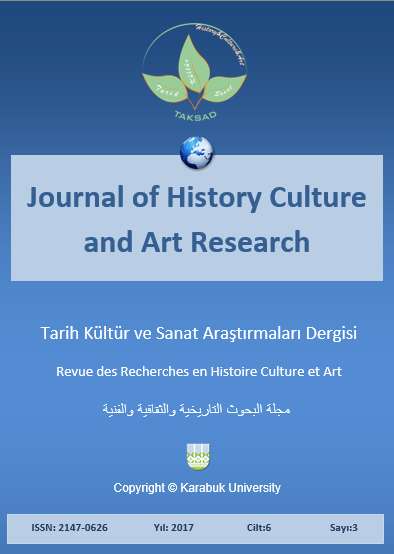Usury Effect on the Economy in Jurisprudence and Iranian Legal System
DOI:
https://doi.org/10.7596/taksad.v6i3.994Keywords:
Usury, Jurisprudence, Law, Islamic Law, Islamic Economy.Abstract
In Islamic economics, the subject of usury, as one of the pillars of the economy is crucial, which can affect, for direct and indirect economic performance of Islamic countries. This study was conducted with the aim of studying and analyzing the problem of usury, in jurisprudence, law, and economics. In this study, we examined the concept of usury, economics, law, and jurisprudence, and then according to importance, based on the destructive effects of usury, the economic health of the community, this issue has been dealt with. In addition, the study is usury, the legal landscape, and patterns of usury-free banking is also described. The research is theoretical and library research was used to collect information, library resources, articles, books, fundamental research, the authoritative publications, conferences and the internet. The findings of this study, suggestions are presented, with a focus on ways out of usury, and also implement banking without usury.References
Ahmadvand, Khalilollah & Tohidi, Mohammad (2016). Measuring causality of being oppressive usury in productive and consuming loans. Two Scientific-Research Quarterlies in Islamic Financial Researches, 4th year, no. 2, pp: 41-68.
Al-Husseini Zobeidi, Mohammad Morteza (1973). Crown of Bride, From Jewel of Qamoos, Volume10, page: 143. Beirut: Darolhedayah.
Allameh Helli, Abu Mansour Hassan ibn Yusuf ibn Motahhar Helli Assadi (1993). Laws about Lawful and Unlawful. Society of teachers in Qom seminary, page 63. Qom: Office of Islamic publication.
Allameh Helli, Abu Mansour Hassan ibn Yusuf ibn Motahhar Helli Assadi (1993). Shiite in Rules of Religious Law. Volume V., page 42. Qom: Institution of Islamic publication.
Bidabad, Bijan & Herssini, Abdorreza (2011). Analyzing jurisprudence- economical usury in consuming loans. Investing and Lack of Common Jurisprudence in Discovering Laws. Monthly of Bank and Economy No: 106. pp 38-42.
Bohrani, Yossof (1984). Alhadaegh al-Nazerah in Ahkam al-Taherah, volume 19, p. 269. Beirut: Darolazva.
Ebrahimi, Mohammad Hussein (1994). Usury and loaning in Islam. Qom.
Farahanifard, Saeed (2000). Role of usury-free Banking in eradicating poverty. Mofid Scientific-research Magazine, no. 17, pp. 115 -130.
Farzinvash, Asdullah & Nadri, Kamran (2002). Usury, bartering interest and natural one (criticizing interest, in economical theorist of Muslim thinkers). Magazine of Economical Research, no. 60, pp. 149-185.
Hal. R. Varian (2001). Economics of Information Technology. University of California, Berkeley.
Makarem Shirazi, Naser (2001). New Esteftaat, Volume 2, 2th edition, p. 235, question 724. Qom: Imam Ali School.
Manzoor, Davood & Yadipoor, Mahdi (2010). Scientific-Research Quarterly of Islamic Economy. 9th year, no. 36, pp. 89-116
Mohaqegh Damad, Seyyed Mostafa (2003). Jurisprudence Doctrines. First volume, 10th edition, page 9. Islamic sciences publication center.
Moosavi Golpaygani, Seyyed Mohammad Reza (1985). Majma-al-Masael. Volume 2, 2th edition, p. 3., Qom: DarolQoran.
Moosavian, Seyyed Abbas (2006). Modern Method of Usury-Free Banking. Quarterly of Islamic economy, 6th year, no. 23, pp. 13-50
Moosavian, Seyyed Abbas & Neysami, Hussein (2015). Considering new views about usury and bank interest, two scientific-research. Quarterly of Financial-Islamic Studies. 3th years, no. 2-6; pp. 7-36.
Naderi Kazaj, Mahmood & Sadeghi, Hussein (2004). Considering efficiency of usury-free banking in different countries and comparing usury-free banks with usury-based banks throughout the world by using way of analyzing data. Quarterly of Economical Researches, no. 9810, pp. 25-58.
Najafi, Mohammad Hassan (1983). Value of Words in Describing Islam's Law, Volume 23, page 336 Beirut: Dar al-ehya al-turath al-Arabi.
Nooraei, Yusuf (2015). Jurisprudence Consideration of Avoiding From Usury, Bulletin of Islamic Jurisprudence and Law Bases. Second year, no. 2, pp. 107-122.
Qafoori Charkhabi, Hussein (2009). Considering Quran's Verses about Usury and Its Law; Special Quarterlies about Studies of Islamic Economy. Second year, no.1, pp. 183-214.
Sadr, Seyyed Mohammad Bagher (1980). Usury banking in Islam, Beirut: Dartaarof.
Tabatabaei Yazdi, Seyyed Mohammad Kazem (1994). Urvat al-Vuthqa. Volume 1, page 4. Qom: Davari School.
Tootoonchina, Iraj (2001). Money and Islamic Banking and it's Ccomparison with Capitalism Regime. Tehran: Tavangaran Publication.
Zeyneddin, ibn Ali ibn Ahmad Ameli al-jabei, "Second martyr" (2000). Arozut al-bahiya fi Sharh al-Damascus. Volume 3, p. 444. Qom: Davari publication.
Downloads
How to Cite
Issue
Section
License
All papers licensed under Creative Commons 4.0 CC-BY.- Share — copy and redistribute the material in any medium or format
- Adapt — remix, transform, and build upon the material for any purpose, even commercially.
Under the following terms:
Attribution — You must give appropriate credit, provide a link to the license, and indicate if changes were made. You may do so in any reasonable manner, but not in any way that suggests the licensor endorses you or your use.
- No additional restrictions — You may not apply legal terms or technological measures that legally restrict others from doing anything the license permits.







